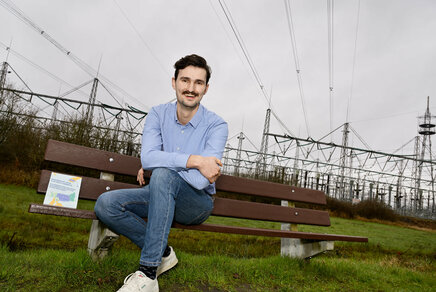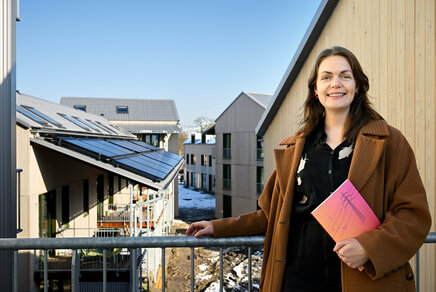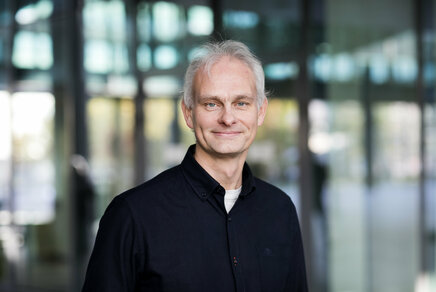Floor Alkemade receives ERC Consolidator Grant for research on energy transition
Alkemade will work with a team of three doctoral students and a postdoc.

In times of increasing energy prices and concerns about climate change and energy security, the energy transition is a much-discussed topic. But the pace of the energy transition needs to increase to meet our climate goals. Floor Alkemade, Professor of Economics and Governance of Technological Innovation and connected with the faculty of Industrial Engineering and Innovation Sciences and institute EIRES, has been awarded a Consolidator Grant of 2 million euros by the European Research Council for her research to investigate how social tipping dynamics can realize this much needed acceleration of the energy transition.
A street full of electric cars, roofs full of solar panels, all houses with a heat pump and deserted plains full of windmills. In theory, a lot is already possible for a future full of sustainably generated energy. But how fast will the energy transition take place in practice? To predict the future, policy makers and investors use extensive models.
These models contain a lot of knowledge and information about the costs and prices of technologies such as electric cars, solar panels, heat pumps and wind turbines. But they do not give a good picture of the human behavior that influences the transition to a sustainable energy system. This concerns large-scale changes in behavior, norms and values or support for certain technologies.
Shortage of installers
Without a good picture of these changes, the predictions are less accurate. As a result, policy makers and investors could not, for example, foresee that in a short period of time an increasing number of consumers would be interested in an electric car, a heat pump or solar panels. The result: waiting lists, a lack of charging stations and a shortage of installers for heat pumps.
"We know that social processes are important, but we don't yet fully understand how they scale up to tipping points, so-called social tipping points at the system level," says Floor Alkemade. Social tipping points occur when a relatively small change sets in motion a series of processes that together have a major impact on sustainability.
Alkemade: "If we better understand the role of social processes and how the interactions between different processes lead to an acceleration of the energy transition as a whole, then we can build better models. And with that we will support policy makers and investors in their choices about, for example, subsidy schemes, investments and infrastructure."

Why are these models needed?
"Social tipping dynamics offer the chance to accelerate the energy transition. To deliver on that promise, we need to better understand these dynamics. There is already a lot of research on the social and behavioral components of the energy transition but we don't yet fully understand how the different processes influence each other and technology development. These interactions are the subject of my research because from them emerge the social tipping dynamics that can accelerate the energy transition."
Do you have a concrete example of such a social process?
"We can see an example of the role of social processes now in the rapidly increasing demand for heat pumps and solar panels. Of course rising energy prices play a role here, but concerns about climate change and the desire for energy independence also count. If we know how to model such rapid increases better, we can invest in infrastructure and installer training in good time and prevent the energy transition from being delayed."
How do you capture these kinds of social components in models?
"For this we work with a new type of models: social simulation models. You simulate the behavior of people from the bottom up, and subsequently look at what happens at the system level. The research is interdisciplinary. Of course we use the data from existing models, but we supplement it with data and scientific literature from the behavioral sciences, for example.
In this way we want to better predict the tipping points, so that governments and large companies with interests in the energy transition can respond better. We want our models to be so reliable that social factors are included as standard in all energy transition models and we can use them to accelerate the transition."
The research Fostering social tipping dynamics to Accelerate Sustainability Transitions (FAST) will involve three PhD students and a postdoc, funded from this ERC grant, under Professor Floor Alkemade.
Media contact
More on Sustainability



Latest news


